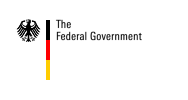The German government intends to avail itself of the opportunity afforded by its EU and G8 presidencies to try to strengthen partnership with Africa.
Merkel indicated that this partnership extends far beyond traditional development assistance. It also involves institution building and insistence on good governance. She said respect of human rights and seeing to it that development aid gets to those who need it most are basic tenets of European policy.
Merkel assured the African leaders gathered in Cannes that agreed amounts of development funding will continue to be provided.
Merkel was invited by President Jacques Chirac to be guest of honour at the Franco-African summit in Cannes. The leaders of more than thirty African countries and representatives of nearly all fifty-three were present. The general summit theme was "Africa and international balance".
Franco-African summits have been held since 1973. Initially they were meetings between the francophone countries and their former colonial power. Since 1981 they have been officially referred to as meetings of the heads of state and government of France and Africa and have included all African countries. They are informal in character. Each summit is devoted to a specific topic.
Using economic growth to promote development
Merkel observed that Africa's economy is growing at a rate of more than five percent a year, the strongest expansion seen in more than thirty years. She noted that this dynamic trend could be harnessed to promote development if there were simultaneous progress in the areas of good governance, transparency, and the fight against corruption. She added that progress in these areas is an absolutely necessary prerequisite.
The focus of the German initiative will be on promoting investments and economic integration. In Merkel's estimation the chances of success are rather good.
Implementing EU Strategy for Africa
The EU is Africa's most important trading partner and provides more than sixty percent of the development assistance it receives. During its EU presidency Germany will work towards implementation of the Strategy for Africa adopted in 2005. The German government will continue to support Africa's own efforts to achieve peaceful and democratic development.
Merkel indicated that the objective is to develop a joint plan for cooperation prior to the EU-Africa summit scheduled to be held in Lisbon at the end of 2007.
Addressing global challenges together
In Merkel's view issues such as climate change, energy supplies, migration, poverty, and HIV/AIDS need to be addressed together with Africa. The same also applies to security matters such as the fight against international terrorism.
Merkel welcomed the growing desire shown by numerous African governments to assume joint responsibility. She said the establishment of the African Union and regional peace initiatives are clear steps in this direction.
Calls for peace in Sudan and Zimbabwe
Merkel was sharply critical of the continuing humanitarian crisis in the Darfur Region. "We call upon the Sudanese government to show a sense of responsibility and to do everything possible to protect its citizens and allow them to live in a situation that is in keeping with human dignity." She said a joint African Union and United Nations peacekeeping mission is urgently needed.
Merkel went on to say that Germany is monitoring the situation in Zimbabwe with great concern. She noted that there is no justification for the current government's violence and intimidation against members of the political opposition. She said there is a need for Zimbabwe's neighbours in the region to stand up for what is right. She urged the African heads of state and government to exert their influence to help protect persons who are being persecuted.

